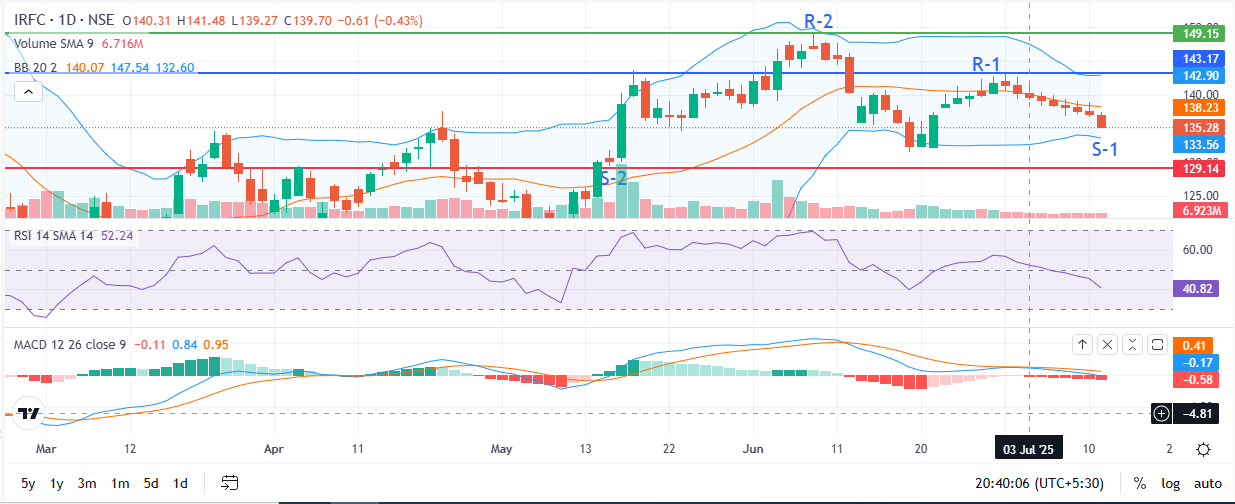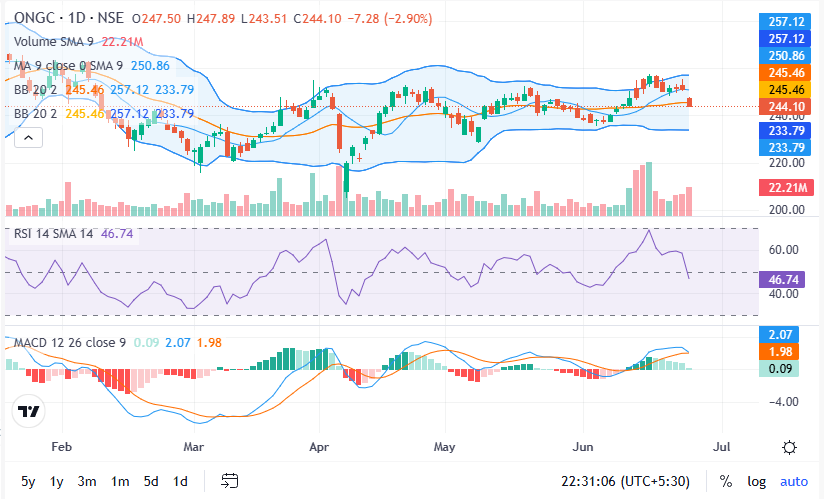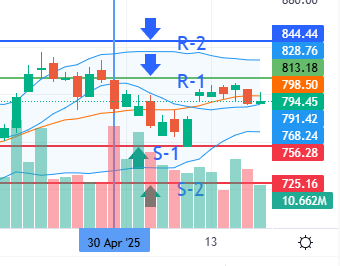India’s economy is expected to grow significantly during the next ten years because to a burgeoning middle class, government reforms, innovation, and digital change. The correct industries can yield significant profits in the future for investors looking for long-term prospects. Even though investing is always risky, making wise financial and investment decisions requires an awareness of market trends and sectoral development potential.
Over the next 10 years, we’ll examine some of India’s most promising industries to keep an eye on and possibly invest in. These industries provide intriguing prospects for long-term growth, whether you’re purchasing stock shares to diversify your portfolio or generate wealth.
1. Green Energy
In order to accomplish its climate targets and lessen its reliance on fossil fuels, India is quickly moving toward clean energy. Massive investments in solar, wind, and green hydrogen projects have been spurred by the government’s commitment to achieve net zero emissions by 2070.
Why it seems promising: Government assistance in the form of subsidies and legislative changes
Growing foreign direct investment and involvement of the private sector
Growing demand for energy in both urban and rural locations
Investment outlook: Businesses that produce solar panels, store batteries, and distribute energy are probably going to be at the forefront. For diversified exposure, look for equity shares of publicly traded renewable energy companies or investigate green energy mutual funds.
2. Digitization and Information Technology
Although India’s IT industry has long been a major force in the world, its prospects go beyond conventional outsourcing. This sector will continue to grow rapidly due to the rising demand for cloud computing, cybersecurity, AI, and fintech.
Why it’s encouraging: India’s standing as a worldwide center for digital talent
The Digital India project is speeding up the adoption of technology and internet usage.
rise of cutting-edge IT services (IoT, blockchain, AI)
For steady profits, finance gurus frequently advise investing a portion of your portfolio in IT sector equity shares, particularly if you’re a long-term investor.
3. Medicine and Drugs
India’s healthcare sector is expanding due to rising health consciousness, population growth, and government-sponsored programs like Ayushman Bharat. Additionally, pharmaceutical exports remain a stronghold, particularly for vaccines and generics.
Reasons for its promise:
Growing desire for telemedicine and reasonably priced healthcare
Private hospital and diagnostics expansion
Biotech and clinical research innovation
Investment outlook: Historically, equities in the pharmaceutical and healthcare industries have provided protective characteristics during periods of market turbulence. Investors should keep an eye out for pharmaceutical companies with a strong R&D component and scalable healthcare providers.
4. Auto Parts and Electric Vehicles (EVs)
India’s EV revolution is only getting started as fuel prices climb and environmental consciousness develops. By 2030, the government wants to see 30% of vehicles be electric, making this industry a potential development engine.
Reasons for optimism: Significant expenditures on infrastructure for charging
Rewards under the PLI and FAME II programs
Opportunities in the production of EV components and battery technology
Over the next ten years, equity ownership of businesses in the EV supply chain, from battery manufacturers to automakers, may yield exponential gains.
5. Fintech and Financial Services
The ecosystem of financial services in India is changing quickly, especially as neobanks, insurance tech, and digital payments expand. As a result of growing digitization, traditional banking is also changing.
The expansion of financial inclusion in Tier 2 and Tier 3 cities is one reason why it is encouraging.
Increase in retail equity involvement and mutual fund SIPs
Growing usage of robot-advisory tools, mobile banking, and UPI
This industry will continue to play a significant role in India’s financial environment, providing both established firms and innovative startups with excellent investment opportunities. It is worthwhile to keep an eye on NBFCs, insurance companies, and AMCs (Asset Management Companies).
6. Infrastructure and Real Estate
The real estate industry is poised for a comeback because of India’s fast urbanization and significant government investments in infrastructure (roads, metros, smart cities). Commercial spaces, warehouses, and affordable housing are popular market niches.
Why it’s encouraging: The Gati Shakti Plan’s strong push for infrastructure
Demand for housing has increased after COVID
Real estate investment trusts’ (REITs’) growth
Equity shares of infrastructure and construction companies or REITs traded on the stock exchange provide investors with exposure.
7. E-commerce and consumer goods
Long-term, consumer goods and e-commerce are profitable in India due to the country’s sizable youth population, rising disposable incomes, and expanding internet coverage.
The growing middle class and desire for luxury brands are the reasons it is encouraging.
Growth of rural markets
An increase in D2C (direct-to-consumer) brands
From e-commerce sites to FMCG behemoths, this industry provides both stability and innovation. Pay attention to developing trends such as digital-first businesses and eco-friendly packaging.
8. EdTech and Education
A technological revolution is taking place in the Indian education system. Online learning platforms are in high demand from both working professionals and students, even if traditional schools and colleges continue to play an important role.
The government’s emphasis on the National Education Policy (NEP 2020) is one reason why it is encouraging.
Online learning is becoming more popular throughout all age groups.
Platforms for lifelong learning and upskilling
For investors with a longer time horizon and a greater tolerance for risk, EdTech offers substantial investment potential, despite its continued volatility.
Concluding remarks
Financial inclusion, sustainability, and technology will all play a role in India’s growth story during the next ten years. Diversifying your investments among several high-growth areas can help balance returns and volatility, even if no sector is risk-free.
It’s critical for investors to carry out in-depth research, evaluate the fundamentals, and match their investments with their time horizon and risk tolerance. Before making any purchasing decisions, think about using SEBI-registered platforms or speaking with a certified financial advisor.
This is not the advice on investment; rather, it is meant to be educational and informative only. There are risks associated with stock market investment, therefore before making any decisions, readers should conduct independent research or speak with a licensed financial counselor. The author’s thoughts are their own and may not represent those of this blog or its affiliates.




